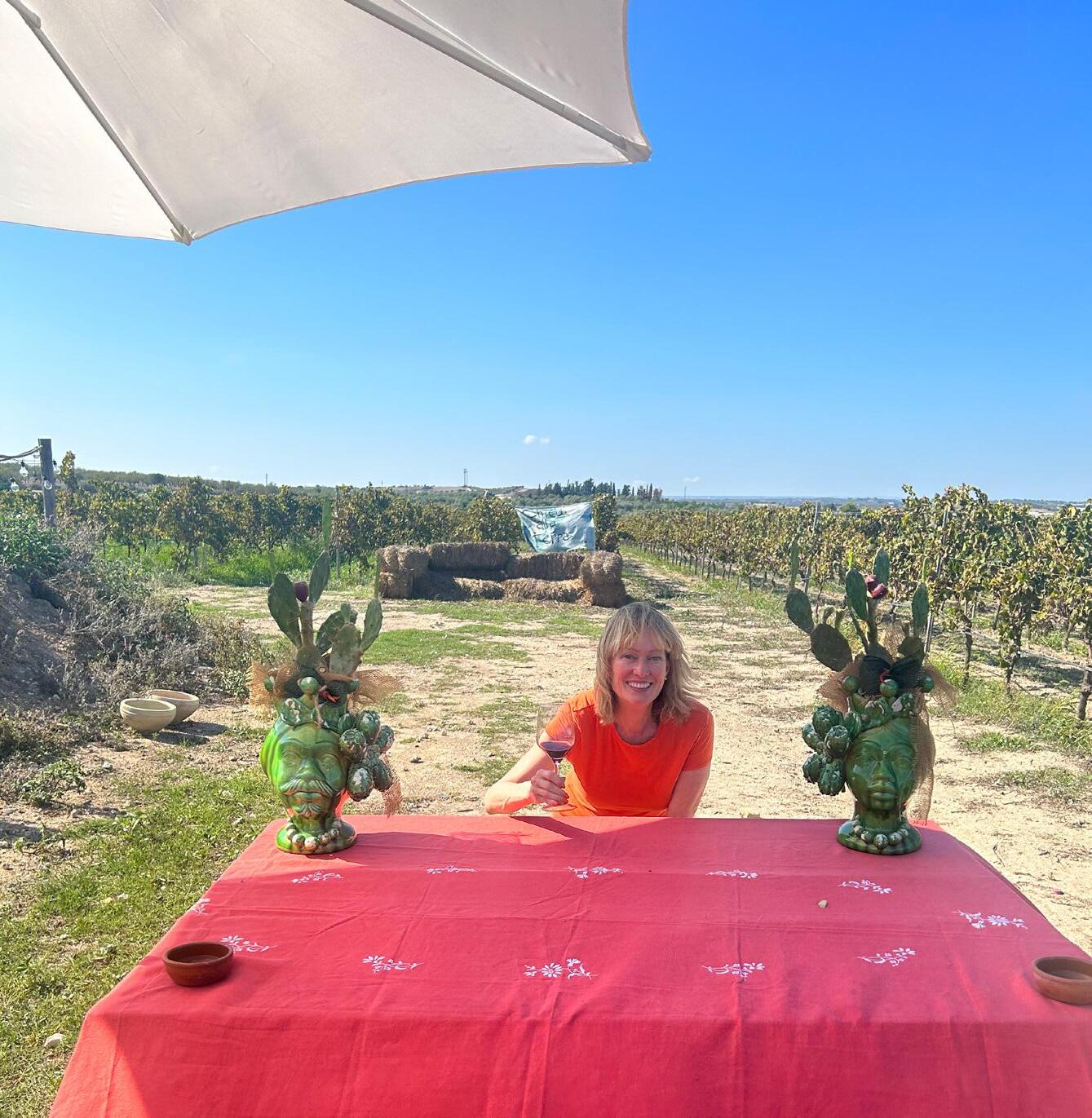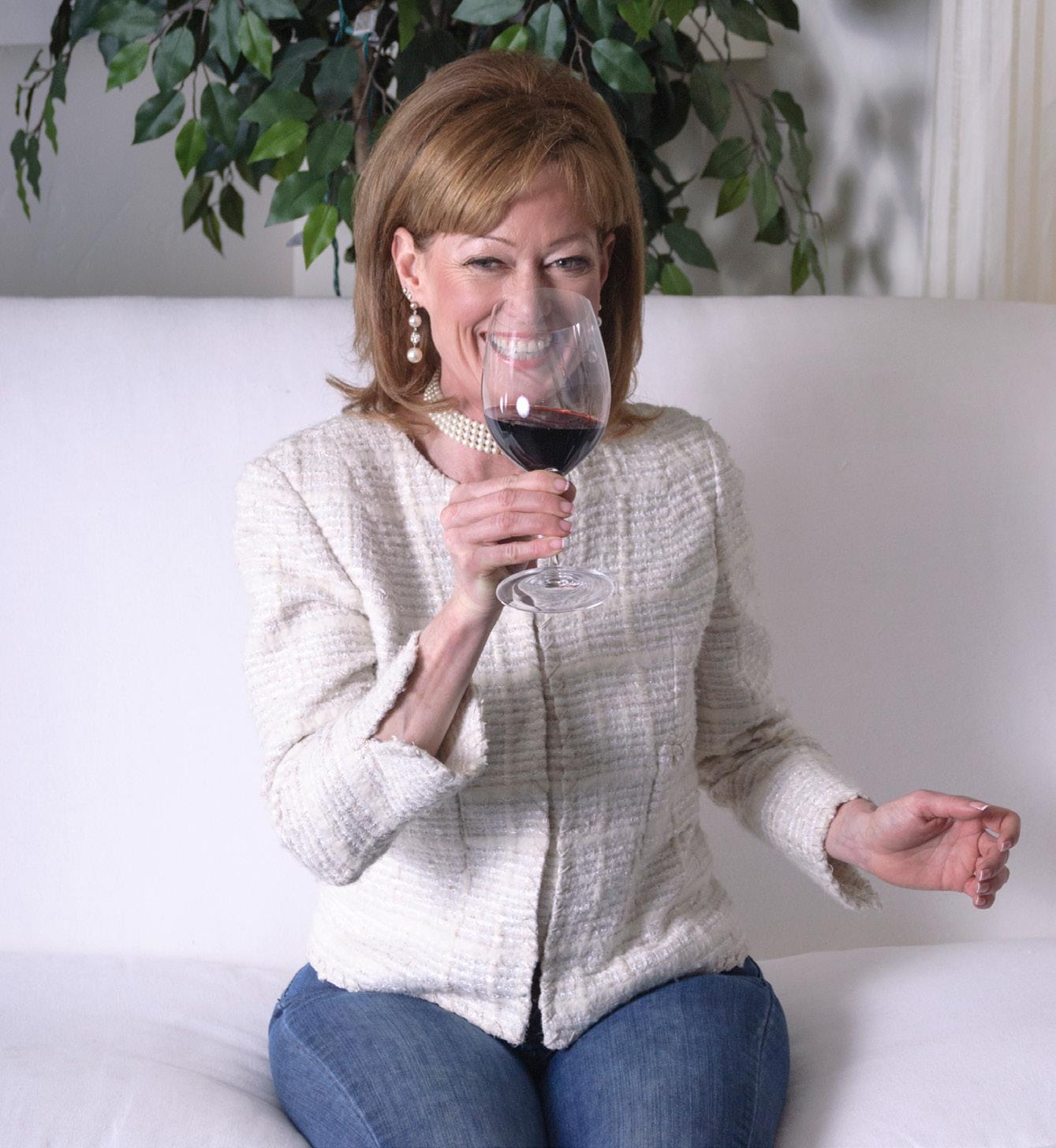
6 minute read
The Grape Goddess: Rising Above Circumstance with Catherine Fallis MS
Catherine Fallis MS, also known as the Grape Goddess, is an author, columnist, critic, speaker, and the fifth woman in the world to attain the Master Sommelier designation. Catherine currently owns and manages , a platform that provides reviews and offers restaurant consultation services. She is also a much sought-after public speaker. ASI spoke with Catherine about her journey from poverty to professional success.

ASI: Growing up, did you ever foresee wine as a career?
Catherine Fallis MS (CF): It's an emphatic no. I think for many of us who end up in this industry, it’s by way of something else. I grew up in less-than-ideal conditions, moving around quite a bit and living in some very challenging inner-city neighbourhoods. This made me incredibly independent but also unaware of life beyond the small bubble I knew. It made me hungry for something else, gave me the desire to see the greater world, and allowed me to imagine a life far removed from what I was living. At 19 or 20, I travelled to Europe, staying in youth hostels, camping, or even climbing onto luggage racks to sleep on overnight train journeys. I remember arriving in Paris and buying a peach at a fruit stall. When I picked it up and unwrapped it from its beautiful packaging, I kept thinking, This peach smells amazing. I was entranced by its aroma and taste, not by the 10 euros or whatever I had paid for it.
ASI: Do you think your challenging upbringing and food insecurity made you more aware of these new flavours than someone who may have grown up with more exposure to food and drink?
CF: Definitely. My senses were so overwhelmed by that peach in Paris or my first taste of a tomato in Bari, Puglia. Everything about Europe mesmerised me: the sights, the sounds, the architecture, and the culture. It was incredible to see people strolling after dinner on a Sunday in Florence, or in Paris, where everyone seemed so impeccably dressed and fragrant with cologne and perfume.
These experiences heightened my sensory awareness—for my eyes, my nose, and my palate. After this, I transitioned into hospitality, working in hotel and restaurant management. I decided to pursue a career that would allow me to work anywhere in the world so I could surround myself with beautiful things, even though I didn’t yet know it would involve food and drink. That said, I had imagined making chocolate, working as a baker, or becoming a chef. I tried the latter, but it was a huge disaster.

ASI: You eventually landed at Windows on the World in New York City. How did that shape your career?
CF: I started out in hotel and restaurant management, which was very tedious. At 23, I looked at my potential colleagues, who were in their 50s and 60s, never married, and had no personal life because they worked nights, weekends, and holidays. I wanted to specialise in something to break out of this routine.
I read an article in The New York Times about Kevin Zraly, describing how people who worked for him went on to have amazing careers. I thought, I want to work for him at Windows on the World. After a year and a half of persistence and stubbornness, I finally got an interview—and he hired me. That was the beginning of my wine career.
While there, I met amazing wine producers and educators from around the world. It was during this time I became aware of the Court of Master Sommeliers, but I didn’t begin the programme until I moved to Hawaii. I had three jobs at the time, but I used every free moment to study.
After a couple of years, I moved to Los Angeles to work with a distributor, and that’s when I began seriously working towards the MS. Six or seven years later, I finally passed.
ASI: At the time, you were one of the few women Master Sommeliers. Were you subjected to sexist behaviour in a profession dominated by men?
CF: Absolutely, and it remains an issue. Even now, at the upper levels of sommellerie, the majority of MS candidates are men. The biggest fall-off seems to occur at the advanced level.
Part of the problem is representation. When you look at a picture of Master Sommeliers and don’t see many people who look like you, it can make you feel like you don’t belong. That’s a significant barrier.
At the time, I didn’t have much in the way of mentorship or coaching. Madeline Triffon was my beacon. I remember flying out to Michigan to spend three days with her at her restaurant. She was incredibly generous with her time.
She inspired me not to quit, even when I faced sexism and other challenges. Her advice to “put on the blinders, don’t get distracted, and win the race” was invaluable.
ASI: Is mentoring women important to you?
CF: Absolutely. By mentoring and inspiring others, I hope more women will pursue the Master Sommelier designation.
ASI: Are there women in the industry who inspire you?
CF: Laura Catena. She has completely transformed the landscape in Argentina, which is a male-dominated culture. She inspires confidence in women to take on leadership roles in winemaking and winery management. Confidence is so critical to success.
ASI: How much confidence did it take to transition from writing technical wine descriptions to consumer-friendly ones?
CF: A great deal. Wine language is historically technical and complex, but I believed it could be clearer.
For example, in my consumer friendly work, I avoid terms like tannin because not everyone knows what that means. I’ve received feedback from beginners saying, You’re the first person I can understand when it comes to wine That’s deeply rewarding.
ASI: Are there any rising female sommeliers you’d like to highlight?
CF: There are so many talented women out there. I’m also thrilled to see increasing diversity in race, gender, and background. Hopefully, more people will say, If they can do it, I can too.





